Do you remember how people around you reacted, the first time you talked openly about menstruation? Do you still feel uncomfortable, and find it difficult to mention menstruation in school, work, or social settings?
Menstruation is a normal biological phenomenon. Unfortunately, it is still considered a taboo subject and cannot be discussed easily in many cultures today. The stigma surrounding menstruation has even led to women losing their lives: in 2023, a 16-year-old girl in Nepal died after being bitten by a snake, while staying in an isolated hut due to local menstrual taboos. And, even in relatively affluent places such as Hong Kong, many underprivileged women and girls struggle with the monthly cost of essential menstrual products.
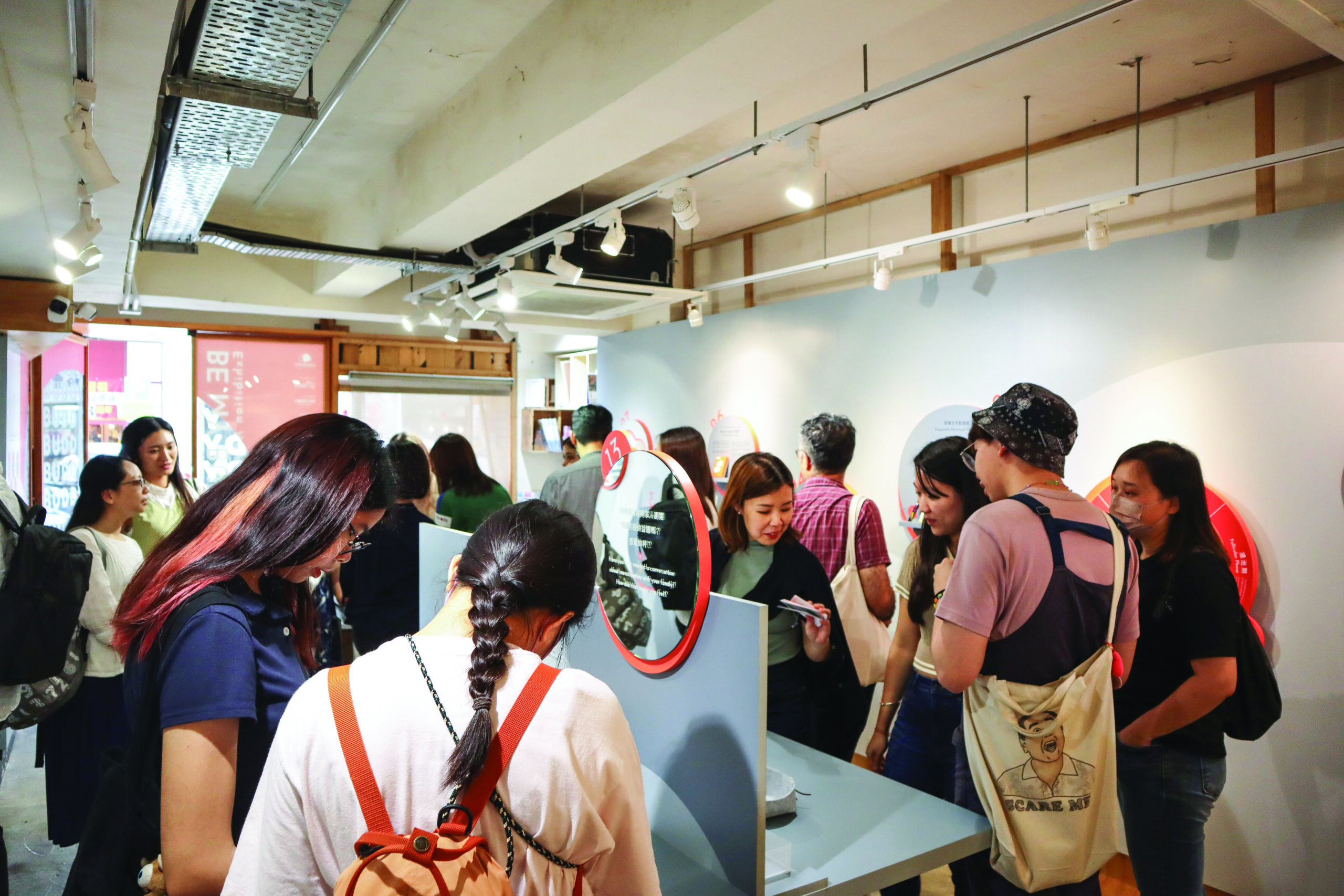
“In Hong Kong, the average monthly spending on menstrual pads per woman is equivalent to a 5kg bag of rice. For low-income families having to budget every dollar for their meals, how can they afford such costs every month?”
Period poverty
According to a 2019 survey by charitable organisation Free Periods Hong Kong (Free Periods), 42% of respondents had tried to save money by not changing their menstrual pads even when they were fully soaked or had been used for over 4 hours; 27% cut spending on menstrual products to afford other living expenses. “In Hong Kong, the average monthly spending on menstrual pads per woman is equivalent to a 5kg bag of rice. For low-income families having to budget every dollar for their meals, how can they afford such costs every month?” asks Zoe Chan, Co-founder of Free Periods.
Free Periods is committed to promoting and building a menstruation-friendly society, alleviating period poverty and breaking the menstrual taboo. Joyce Fung, another Co-founder of the organisation, says the concept of menstrual equity is gradually gaining awareness in Hong Kong. However, considering many people spend a significant amount of time in the workplace, if businesses could create a menstruation-friendly environment, it would play a crucial role in advancing menstrual equity. “Can companies consider how to improve washroom facilities? Can employees of different gender show more understanding towards those who are menstruating? Employers should think about how to build a more friendly workplace,” says Joyce.
As a socially-responsible company, Hactl is determined to take an extra step. It is the lead sponsor of the “Hactl × Free Periods Hong Kong — Be My Buddy Buddy” programme, which is staging multiple public menstrual equity workshops, exhibitions and educational talks during 2023 and 2024. Hactl also donated 500 “Buddy Buddy Gift Boxes”, containing menstrual products and thoughtful gifts, to support women and girls in need, in order to promote menstrual equity and alleviate period poverty.
Internally, Hactl has held exhibitions and talks on menstrual equity to encourage staff to show concern for the issue. Hactl Executive Director and Chief Financial Officer Amy Lam says: “We hope to break the taboo about discussing menstruation in the workplace, especially in our terminal where the majority of our workforce is male. By raising awareness of menstrual health, and showing care and understanding to female staff experiencing discomfort during their periods, we aim to build a menstruation-friendly workplace.”
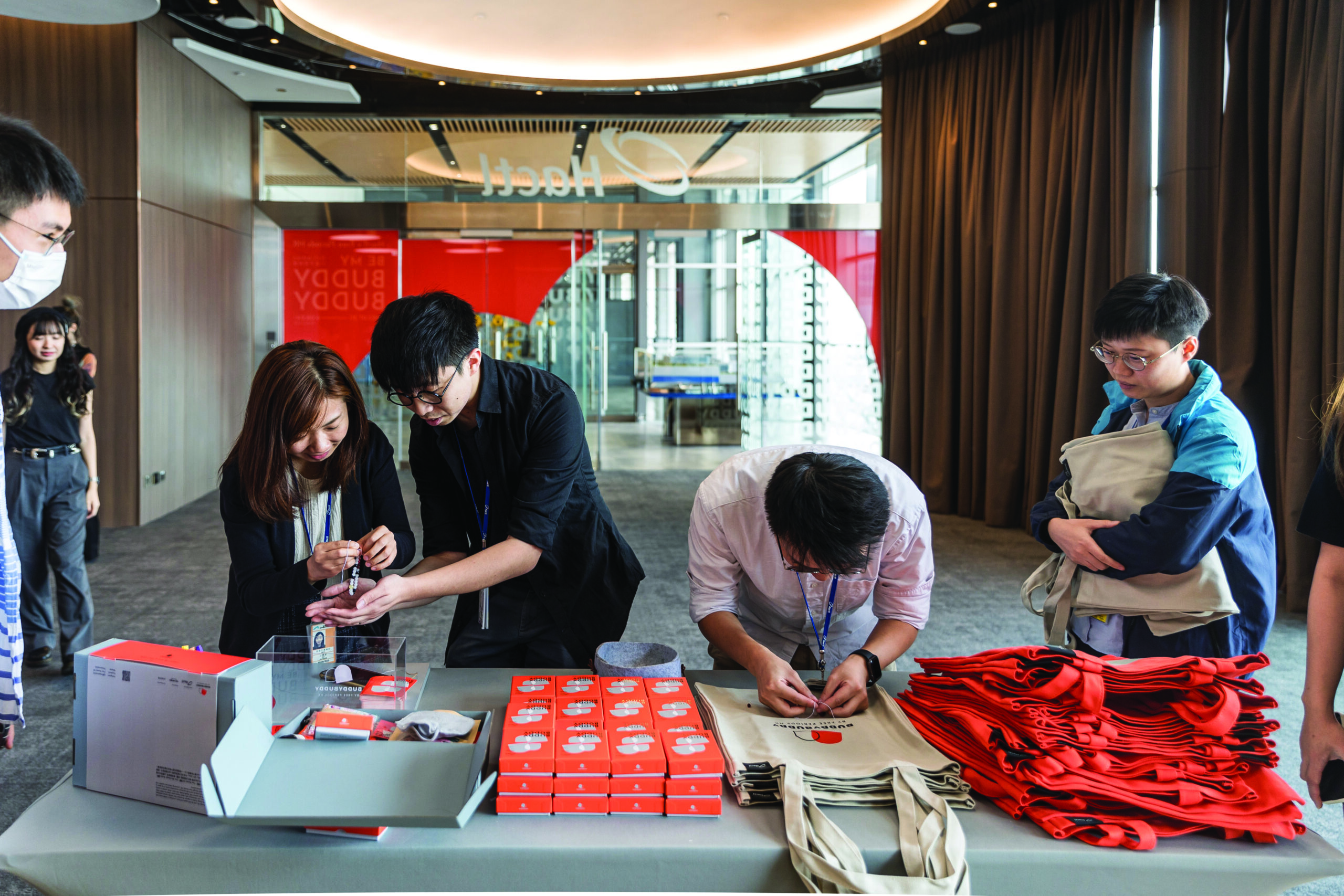
“Should discussion of menstruation only involve women? No, gender equality at work requires support from male staff, too. By demonstrating care to the people around us, we also show them this topic can be discussed openly, and it’s not a taboo.”
Reliable buddy
To build this ideal work environment, Hactl set up “Wellness Boxes”, stocked with items to relieve menstrual discomfort, such as hot-water bottles and herbal tea, at frontline staff rest rooms and office pantries. Free menstrual products are also provided in women’s washrooms for employees in need.
In addition, Hactl has formed a dedicated “Be My Buddy Buddy” taskforce comprising passionate and supportive staff. They help promote messages surrounding menstrual equity within their own teams, while also regularly monitoring and replenishing the stock of items in the “Wellness Boxes” and menstrual products.
Jason Lee, Hactl Executive Director of People and Culture, and Vice Chairman of the “Be My Buddy Buddy” taskforce, says some colleagues were initially concerned that placing menstrual items in common areas like the pantries or restrooms might be inappropriate. However, he believes this action is crucial to breaking the stigma surrounding menstruation. It not only provides convenience for colleagues in need, but also positive menstrual education to everyone. “Should discussion of menstruation only involve women? No, gender equality at work requires support from male staff, too. By demonstrating care to the people around us, we also show them this topic can be discussed openly, and it’s not a taboo,” explains Jason.
Natalie, another member of the taskforce from the Hactl Finance department, recalls how people around her would become extremely reserved whenever the topic of menstruation was mentioned. “Once at school, I accidentally got menstrual blood stains on my skirt. Although some male classmates and teachers noticed it, they hesitated to mention it. So I ended up noticing it only when I returned home.” Natalie also recounts her family’s opposition and their concern over hygiene, when she decided to stop using the traditional sanitary pads, and started using cloth pads three years ago. “If society sees menstruation as taboo, it becomes challenging to openly discuss this topic, let alone promote menstrual equity.”
Natalie says that there are more males than females in her team, so she often hesitates to bring up menstrual-related topics during conversations with them. “But, after I joined this taskforce, they became curious about my involvement and started asking questions about our work. I took this opportunity to initiate discussions on related topics and, surprisingly, some male colleagues engaged in the conversation without any reservations. They even admitted that they carry pads for their wives or partners, just in case!” Natalie laughs.
Zoe explains the importance of support and engagement, as well as creating an understanding and respectful environment. “If we realise menstruation is just a normal part of life and a topic that can be discussed casually, then the notion of ‘it’s a taboo, let’s not talk about it’ will soon fade away.” Breaking society’s misconceptions and stereotypes surrounding menstruation allows women to feel comfortable and confident, while fostering an open and relaxed environment where people of different genders can openly discuss menstruation. This is what Hactl strives for — that menstruation will no longer be a burden for women, but a symbol of health, confidence, and respect.
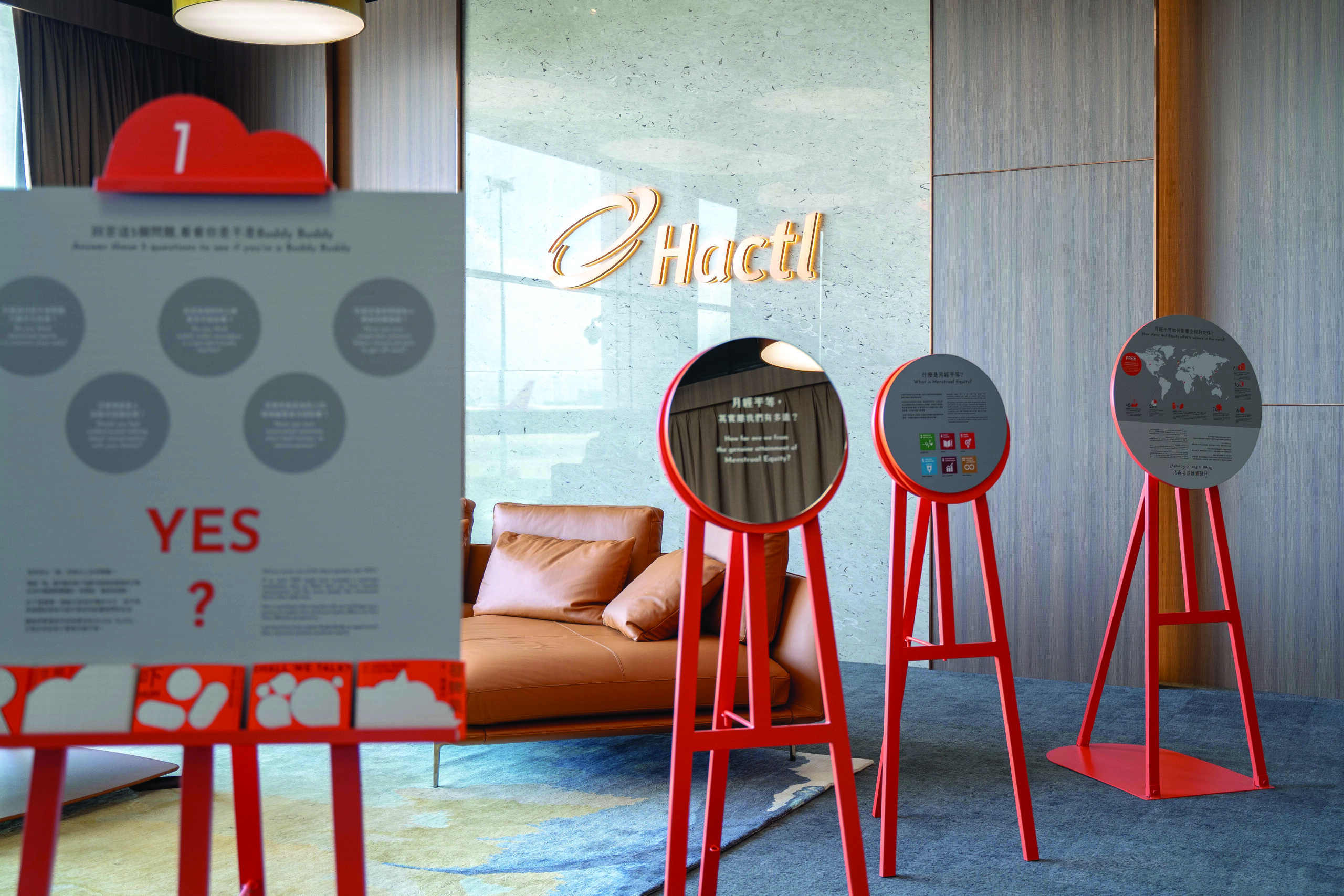
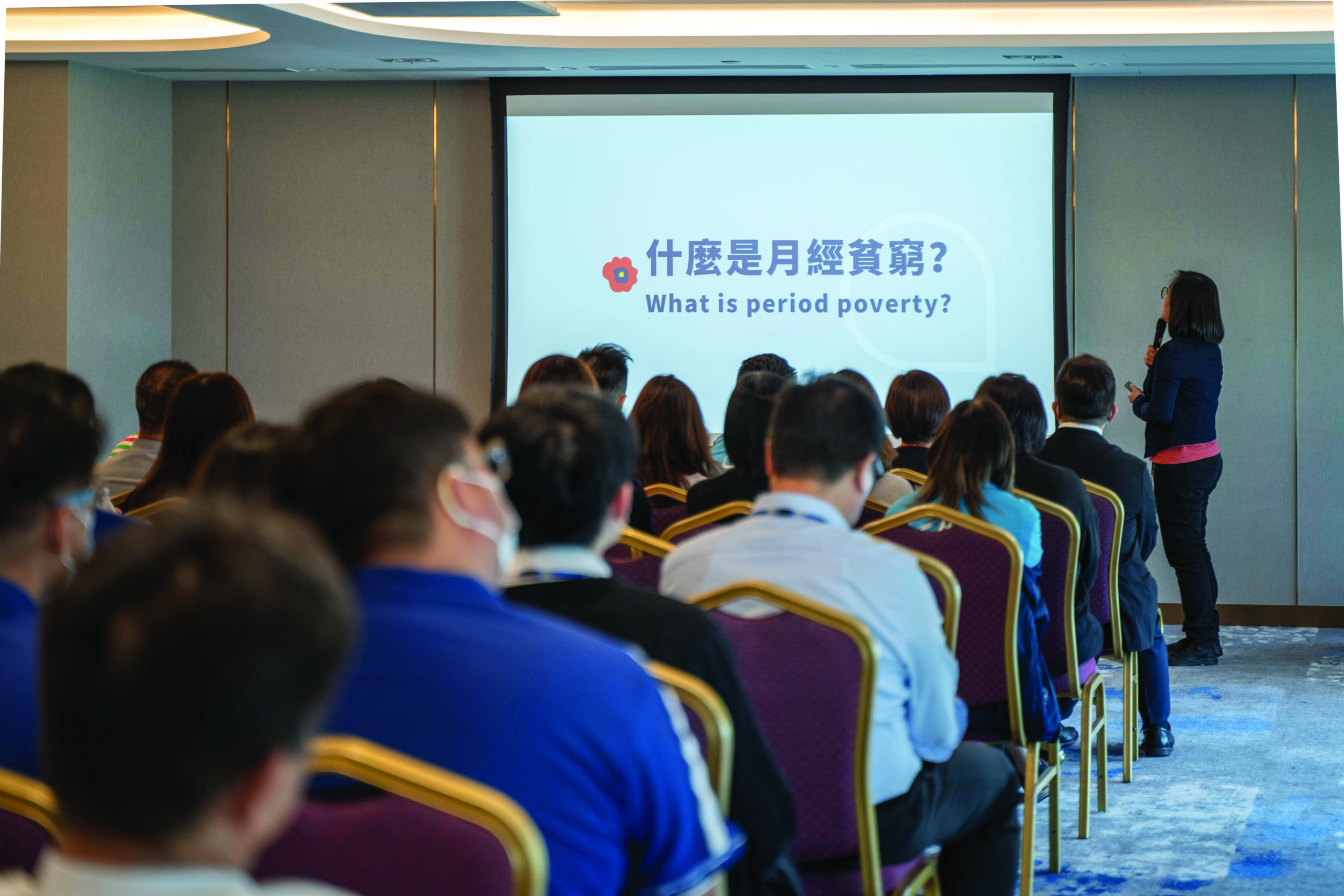
“But, after I joined this taskforce, they became curious about my involvement and started asking questions about our work. I took this opportunity to initiate discussions on related topics and, surprisingly, some male colleagues engaged in the conversation without any reservations. They even admitted that they carry pads for their wives or partners, just in case!”
